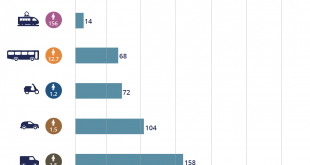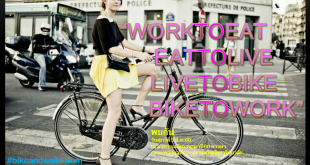Drunk and Ride: Is it illegal?

On September 20, 2015, there was a widely reported case in mass media that a provincial court ruled that a drunk man who had been arrested by police officers for riding bicycle and sent to court by state prosecutors did not commit any violation against the Land Traffic Act. This followed by much debate in the social and print media, both agreeing and disagreeing with the sentence.
Thailand Cycling Club (TCC) therefore organized a roundtable discussion titled “Drunk and Ride: Should We Amend Any Legal Provision and How?” at a hotel in Bangkok on 20th October 2015, aiming to clarify this issue. The discussion was participated by experts and campaigners on road safety and on laws related to land traffic and cycling, Don’t Drink Drive Foundation, a senior police officer, representatives from related government agencies, such as the Land Transport Department, Office of Traffic and Transport Policy and Planning, Office of the Law Reform Commission of Thailand, Village and Sub-District Headmen Society, consumer’s rights protection organisations, bicycle communities and cycling clubs. Four TCC Committee Members led by Prof. Emeritus Thongchai Panswad, Ph.D., TCC President, were presented together with staff team.

The meeting was presented with a WHO latest report on road safety showing that Thailand came second in the world in term of human fatality on road per capita, or more than 24,000 in the last year and findings from a study in Thailand showing that more than 18,000 bicycle users had been treated in 33 hospitals all over the country where figures were made available in the last ten years with 18% had alcohol in their blood, a rate only lower than motorcyclists, and in average, 25 bicycle riders were killed on road each year in the last four years, indicating that alcoholic drinking is a major factor contributing to casualties and injuries of bicycle users on roads.
Legal provisions in laws related to cycling, especially the Land Traffic Act B.E. 2522 (1979), were summarily presented revealing that there was a degree of ambiguity or vagueness allowing different interpretation by different state officials in the judicial process as in the case that led to this meeting. It was followed by presentation of a study on related laws in the UK., Netherlands, Germany, U.S.A., Australia, New Zealand and Japan which showed that with exception in only few states in the U.S., drunk and ride is illegal. However, law enforcement and penalties differ from country to country.

Then the floor was opened to the participants with a note from TCC moderator that this matter was multidimensional; while it must be based on legal principle, its enforcement and implications must be thoughtfully considered as well. As a whole, it was agreed that any drunk person should not ride bicycle and legal provisions should be made clear so. However, as expected, views differed between different stakeholders in terms of how to proceed to clarify this matter and how to enforce the law.
Legal experts pointed out for a need to amend the Land Traffic Act to align general provision in Section 4 with specific provision for bicycles in Section 84, making drunk and ride clearly illegal with certain penalties. Some cyclists suggested that attention should be paid first to preventing the real causes of road accidents, conducting campaign to educate bicycle users to understand related law and not to ride if drunk before strictly enforcing legal measures, while others insisted that if bicycle users wanted to safely and respectfully share the road on the same par with other road users, the same legal provisions must be applied. Police officer and consumer protection organisations said that while the specific provisions of the Traffic Act are not yet amended, or the case not yet proceeded to the Supreme Court where final verdict would be taken as a precedence, other legal provisions could be sensibly used as preventive or control measures, such as the Act’s provision on careless use of the road or the Alcohol Control Act; ultimately everyone must responsibly use the roads, no one should have privilege over others and law enforcement alone could not be total solution to the problem. On the other hand, Thailand Cycling Club would join hands with the Don’t Drink Drive Foundation and Road Safety Academic Center to conduct Don’t Drink Ride campaign.
The roundtable discussion attracted four television channels and a leading national newspaper to report it in their news programmes and led to a number of interviews and talks in other meetings later.
Reported by Gawin Chutima, TCC Committee Member
 ชมรมจักรยานเพื่อสุขภาพแห่งประเทศไทย ชมรมจักรยานเพื่อสุขภาพแห่งประเทศไทย
ชมรมจักรยานเพื่อสุขภาพแห่งประเทศไทย ชมรมจักรยานเพื่อสุขภาพแห่งประเทศไทย



